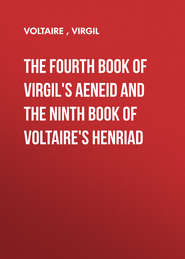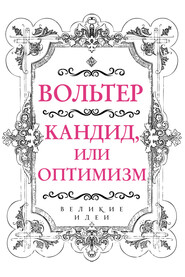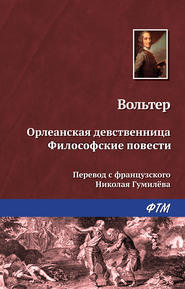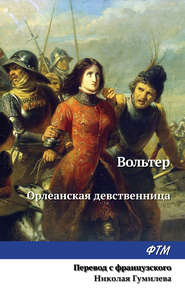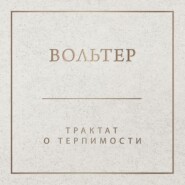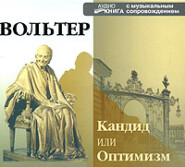По всем вопросам обращайтесь на: info@litportal.ru
(©) 2003-2024.
✖
A Philosophical Dictionary, Volume 01
Настройки чтения
Размер шрифта
Высота строк
Поля
An order in which salvation was so well secured soon extended itself into other states, whose sovereigns allowed themselves to be persuaded that, to be sure of a place in Paradise, it was only necessary to make themselves a friend in it, and that by donations to the churches they might atone for the most crying injustices and the most enormous crimes.
Confining ourselves to France, we read in the "Exploits of King Dagobert" (Gestes du Roi Dagobert), the founder of the abbey of St. Denis, near Paris, that this prince, after death, was condemned by the judgment of God, and that a hermit named John, who dwelt on the coast of Italy, saw his soul chained in a boat and beaten by devils, who were taking him towards Sicily to throw him into the fiery mouth of Etna; but all at once St. Denis appeared on a luminous globe, preceded by thunder and lightning, and, having put the evil spirits to flight, and rescued the poor soul from the clutches of the most cruel, bore it to heaven in triumph.
Charles Martel, on the contrary, was damned – body and soul – for having rewarded his captains by giving them abbeys. These, though laymen, bore the title of abbot, as married women have since borne that of abbess, and had convents of females. A holy bishop of Lyons, named Eucher, being at prayer, had the following vision: He thought he was led by an angel into hell, where he saw Charles Martel, who, the angel informed him, had been condemned to everlasting flames by the saints whose churches he had despoiled. St. Eucher wrote an account of this revelation to Boniface, bishop of Mayence, and to Fulrad, grand chaplain to Pepin-le-bref, praying them to open the tomb of Charles Martel and see if his body were there. The tomb was opened. The interior of it bore marks of fire, but nothing was found in it except a great serpent, which issued forth with a cloud of offensive smoke.
Boniface was so kind as to write to Pepin-le-bref and to Carloman all these particulars relative to the damnation of their father; and when, in 858, Louis of Germany seized some ecclesiastical property, the bishops of the assembly of Créci reminded him, in a letter, of all the particulars of this terrible story, adding that they had them from aged men, on whose word they could rely, and who had been eye-witnesses of the whole.
St. Bernard, first abbot of Clairvaux, in 1115 had likewise had it revealed to him that all who received the monastic habit from his hand should be saved. Nevertheless, Pope Urban II., having, in a bull dated 1092, given to the abbey of Mount Cassino the title of chief of all monasteries, because from that spot the venerable religion of the monastic order had flowed from the bosom of Benedict as from a celestial spring, the Emperor Lothario continued this prerogative by a charter of the year 1137, which gave to the monastery of Mount Cassino the pre-eminence in power and glory over all the monasteries which were or might be founded throughout the world, and called upon all the abbots and monks in Christendom to honor and reverence it.
Paschal II., in a bull of the year 1113, addressed to the abbot of Mount Cassino, expresses himself thus: "We decree that you, as likewise all your successors, shall, as being superior to all abbots, be allowed to sit in every assembly of bishops or princes; and that in all judgments you shall give your opinion before any other of your order." The abbot of Cluni having also dared to call himself the abbot of abbots, the pope's chancellor decided, in a council held at Rome in 1112, that this distinction belonged to the abbot of Mount Cassino. He of Cluni contented himself with the title of cardinal abbot, which he afterwards obtained from Calixtus II., and which the abbot of The Trinity of Vendôme and some others have since assumed.
Pope John XX., in 1326 granted to the abbot of Mount Cassino the title of bishop, and he continued to discharge the episcopal functions until 1367; but Urban V., having then thought proper to deprive him of that dignity, he now simply entitles himself Patriarch of the Holy Religion, Abbot of the Holy Monastery of Mount Cassino, Chancellor and Grand Chaplain of the Holy Roman Empire, Abbot of Abbots, Chief of the Benedictine Hierarchy, Chancellor Collateral of the Kingdom of Sicily, Count and Governor of the Campagna and of the maritime province, Prince of Peace.
He lives, with a part of his officers, at San-Germano, a little town at the foot of Mount Cassino, in a spacious house, where all passengers, from the pope down to the meanest beggar, are received, lodged, fed, and treated according to their rank. The abbot each day visits all his guests, who sometimes amount to three hundred. In 1538, St. Ignatius shared his hospitality, but he was lodged in a house on Mount Cassino, six hundred paces west of the abbey. There he composed his celebrated Institute – whence a Dominican, in a work entitled, "The Turtle-Dove of the Soul," says: "Ignatius dwelt for twelve months on this mountain of contemplation, and, like another Moses, framed those second tables of religious laws which are inferior in nothing to the first."
Truly, this founder of the Jesuits was not received by the Benedictines with that complaisance which St. Benedict, on his arrival at Mount Cassino, had found in St. Martin the hermit, who gave up to him the place in his possession, and retired to Mount Marsica, near Carniola. On the contrary, the Benedictine Ambrose Cajeta, in a voluminous work written for the purpose, has endeavored to trace the origin of the Jesuits to the order of St. Benedict.
The laxity of manners which has always prevailed in the world, even among the clergy, induced St. Basil, so early as the fourth century, to adopt the idea of assembling in one community the solitaries who had fled into deserts to follow the law; but, as will be elsewhere seen, even the regulars have not always been regular.
As for the secular clergy, let us see what St. Cyprian says of them, even from the third century: "Many bishops, instead of exhorting and setting an example to others, neglected the affairs of God, busied themselves with temporal concerns, quitted their pulpits, abandoned their flocks, and travelled in other provinces, in order to attend fairs and enrich themselves by traffic; they succored not their brethren who were dying of hunger; they sought only to amass heaps of money, to gain possession of lands by unjust artifices, and to make immense profits by usury."
Charlemagne, in a digest of what he intended to propose to the parliament of 811, thus expresses himself: "We wish to know the duties of ecclesiastics, in order that we may not ask of them what they are not permitted to give, and that they may not demand of us what we ought not to grant. We beg of them to explain to us clearly what they call quitting the world, and by what those who quit it may be distinguished from those who remain in it; if it is only by their not bearing arms, and not being married in public; if that man has quitted the world who continues to add to his possessions by means of every sort, preaching Paradise and threatening with damnation; employing the name of God or of some saint to persuade the simple to strip themselves of their property, thus entailing want upon their lawful heirs, who therefore think themselves justified in committing theft and pillage; if to quit the world is to carry the passion of covetousness to such a length as to bribe false witnesses in order to obtain what belongs to another, and to seek out judges who are cruel, interested, and without the fear of God."
To conclude: We may judge of the morals of the regular clergy from a harangue delivered in 1493, in which the Abbé Tritême said to his brethren: "You abbés, who are ignorant and hostile to the knowledge of salvation; who pass your days in shameless pleasures, in drinking and gaming; who fix your affections on the things of this life; what answer will you make to God and to your founder, St. Benedict?"
The same abbé nevertheless asserted that one-third of all the property of Christians belonged of right to the order of St. Benedict, and that if they had it not, it was because they had been robbed of it. "They are so poor at present," added he, "that their revenues do not amount to more than a hundred millions of louis d'ors." Tritême does not tell us to whom the other two-thirds belong, but as in his time there were only fifteen thousand abbeys of Benedictines, besides the small convents of the same order, while in the seventeenth century their number had increased to thirty-seven thousand, it is clear, by the rule of proportion, that this holy order ought now to possess five-sixths of the property in Christendom, but for the fatal progress of heresy during the latter ages.
In addition to all other misfortunes, since the Concordat was signed, in 1515, between Leo X. and Francis I., the king of France nominating to nearly all the abbeys in his kingdom, most of them have been given to seculars with shaven crowns. It was in consequence of this custom being but little known in England that Dr. Gregory said pleasantly to the Abbé Gallois, whom he took for a Benedictine: "The good father imagines that we have returned to those fabulous times when a monk was permitted to say what he pleased."
SECTION II
Those who fly from the world are wise; those who devote themselves to God are to be respected. Perhaps time has corrupted so holy an institution.
To the Jewish therapeuts succeeded the Egyptian monks —idiotoi, monoi—idiot– then signifying only solitary. They soon formed themselves into bodies and became the opposite of solitaries. Each society of monks elected its superior; for, in the early ages of the church, everything was done by the plurality of voices. Men sought to regain the primitive liberty of human nature by escaping through piety from the tumult and slavery inseparably attendant on great empires. Every society of monks chose its father– its abba– its abbot, although it is said in the gospel, "call no man your father."
Neither abbots nor monks were priests in the early ages; they went in troops to hear mass at the nearest village; their numbers, in time, became considerable. It is said that there were upwards of fifty thousand monks in Egypt.
St. Basil, who was first a monk and afterwards Bishop of Cæsarea and Cappadocia, composed a code for all the monks of the fourth century. This rule of St. Basil's was received in the East and in the West; no monks were known but those of St. Basil; they were rich, took part in all public affairs, and contributed to the revolutions of empires.
No order but this was known until, in the sixth century, St. Benedict established a new power on Mount Cassino. St. Gregory the Great assures us, in his Dialogues, that God granted him a special privilege, by which all the Benedictines who should die on Mount Cassino were to be saved. Consequently, Pope Urban II., in a bull of the year 1092, declared the abbot of Mount Cassino chief of all the abbeys in the world. Paschal II. gave him the title of Abbot of Abbots, Patriarch of the Holy Religion, Chancellor Collateral of the Kingdom of Sicily, Count and Governor of the Campagna, Prince of Peace, etc. All these titles would avail but little were they not supported by immense riches.
Not long ago I received a letter from one of my German correspondents, which began with these words: "The abbots, princes of Kempten, Elvengen, Eudestet, Musbach, Berghsgaden, Vissemburg, Prum, Stablo, and Corvey, and the other abbots who are not princes, enjoy together a revenue of about nine hundred thousand florins, or two millions and fifty thousand French livres of the present currency. Whence I conclude that Jesus Christ's circumstances were not quite so easy as theirs." I replied: "Sir, you must confess that the French are more pious than the Germans, in the proportion of 4 16-41 to unity; for our consistorial benefices alone, that is, those which pay annats to the Pope, produce a revenue of nine millions; and two millions fifty thousand livres are to nine millions as 1 is to 4 16-41. Whence I conclude that your abbots are not sufficiently rich, and that they ought to have ten times more. I have the honor to be," etc. He answered me by the following short letter: "Dear Sir, I do not understand you. You doubtless feel, with me, that nine millions of your money are rather too much for those who have made a vow of poverty; yet you wish that they had ninety. I beg you will explain this enigma." I had the honor of immediately replying: "Dear Sir, there was once a young man to whom it was proposed to marry a woman of sixty, who would leave him all her property. He answered that she was not old enough." The German understood my enigma.
The reader must be informed that, in 1575, it was proposed in a council of Henry III., King of France, to erect all the abbeys of monks into secular commendams, and to give them to the officers of his court and his army; but this monarch, happening afterwards to be excommunicated and assassinated, the project was of course not carried into effect.
In 175 °Count d'Argenson, the minister of war, wished to raise pensions from the benefices for chevaliers of the military order of St. Louis. Nothing could be more simple, more just, more useful; but his efforts were fruitless. Yet the Princess of Conti had had an abbey under Louis XIV., and even before his reign seculars possessed benefices. The Duke de Sulli had an abbey, although he was a Huguenot.
The father of Hugh Capet was rich only by his abbeys, and was called Hugh the Abbot. Abbeys were given to queens, to furnish them with pin-money. Ogine, mother of Louis d'Outremer, left her son because he had taken from her the abbey of St. Mary of Laon, and given it to his wife, Gerberge.
Thus we have examples of everything. Each one strives to make customs, innovations, laws – whether old or new, abrogated, revived, or mitigated – charters, whether real or supposed – the past, the present and the future, alike subservient to the grand end of obtaining the good things of this world; yet it is always for the greater glory of God.
ABLE – ABILITY
ABLE. – An adjective term, which, like almost all others, has different acceptations as it is differently employed.
In general it signifies more than capable, more than well-informed, whether applied to an artist, a general, a man of learning, or a judge. A man may have read all that has been written on war, and may have seen it, without being able to conduct a war. He may be capable of commanding, but to acquire the name of an able general he must command more than once with success. A judge may know all the laws, without being able to apply them. A learned man may not be able either to write or to teach. An able man, then, is he who makes a great use of what he knows. A capable man can do a thing; an able one does it. This word cannot be applied to efforts of pure genius. We do not say an able poet, an able orator; or, if we sometimes say so of an orator, it is when he has ably, dexterously treated a thorny subject.
Bossuet, for example, having, in his funeral oration over the great Condé, to treat of his civil wars, says that there is a penitence as glorious as innocence itself. He manages this point ably. Of the rest he speaks with grandeur.
We say, an able historian, meaning one who has drawn his materials from good sources, compared different relations, and judged soundly of them; one, in short, who has taken great pains. If he has, moreover, the gift of narrating with suitable eloquence, he is more than able, he is a great historian, like Titus, Livius, de Thou, etc.
The word able is applicable to those arts which exercise at once the mind and the hand, as painting and sculpture. We say of a painter of sculptor, he is an able artist, because these arts require a long novitiate; whereas a man becomes a poet nearly all at once, like Virgil or Ovid, or may even be an orator with very little study, as several preachers have been.
Why do we, nevertheless, say, an able preacher? It is because more attention is then paid to art than to eloquence, which is no great eulogium. We do not say of the sublime Bossuet, he was an able maker of funeral orations. A mere player of an instrument is able; a composer must be more than able; he must have genius. The workman executes cleverly what the man of taste has designed ably.
An able man in public affairs is well-informed, prudent and active; if he wants either of these qualifications he is not able.
The term, an able courtier, implies blame rather than praise, since it too often means an able flatterer. It may also be used to designate simply a clever man, who is neither very good nor very wicked. The fox who, when questioned by the lion respecting the odor of his palace, replied that he had taken cold, was an able courtier; the fox who, to revenge himself on the wolf, recommended to the old lion the skin of a wolf newly flayed, to keep his majesty warm, was something more than able.
We shall not here discuss those points of our subject which belong more particularly to morality, as the danger of wishing to be too able, the risks which an able woman runs when she wishes to govern the affairs of her household without advice, etc. We are afraid of swelling this dictionary with useless declamations. They who preside over this great and important work must treat at length those articles relating to the arts and sciences which interest the public, while those to whom they intrust little articles of literature must have the merit of being brief.
ABILITY. – This word is to capacity what able is to capable—ability in a science, in an art, in conduct.
We express an acquired quality by saying, he has ability; in action, by saying, he conducts that affair with ability.
ABLY has the same acceptations; he works, he plays, he teaches ably. He has ably surmounted that difficulty.
ABRAHAM
SECTION I
We must say nothing of what is divine in Abraham, since the Scriptures have said all. We must not even touch, except with a respectful hand, that which belongs to the profane – that which appertains to geography, the order of time, manners, and customs; for these, being connected with sacred history, are so many streams which preserve something of the divinity of their source.
Abraham, though born near the Euphrates, makes a great epoch with the Western nations, yet makes none with the Orientals, who, nevertheless, respect him as much as we do. The Mahometans have no certain chronology before their hegira. The science of time, totally lost in those countries which were the scene of great events, has reappeared in the regions of the West, where those events were unknown. We dispute about everything that was done on the banks of the Euphrates, the Jordan, and the Nile, while they who are masters of the Nile, the Jordan and the Euphrates enjoy without disputing. Although our great epoch is that of Abraham, we differ sixty years with respect to the time of his birth. The account, according to the registers, is as follows:
"And Terah lived seventy years, and begat Abraham, Nahor, and Haran. And the days of Terah were two hundred and five years, and Terah died in Haran. Now the Lord had said unto Abraham, get thee out of thy country and from thy kindred, and from thy father's house, unto a land that I will show thee. And I will make of thee a great nation."
It is sufficiently evident from the text that Terah, having had Abraham at the age of seventy, died at that of two hundred and five; and Abraham, having quitted Chaldæa immediately after the death of his father, was just one hundred and thirty-five years old when he left his country. This is nearly the opinion of St. Stephen, in his discourse to the Jews.
But the Book of Genesis also says: "And Abraham was seventy and five years old when he departed out of Haran."
This is the principal cause (for there are several others) of the dispute on the subject of Abraham's age. How could he be at once a hundred and thirty-five years, and only seventy-five? St. Jerome and St. Augustine say that this difficulty is inexplicable. Father Calmet, who confesses that these two saints could not solve the problem, thinks he does it by saying that Abraham was the youngest of Terah's sons, although the Book of Genesis names him the first, and consequently as the eldest. According to Genesis, Abraham was born in his father's seventieth year; while, according to Calmet, he was born when his father was a hundred and thirty. Such a reconciliation has only been a new cause of controversy. Considering the uncertainty in which we are left by both text and commentary, the best we can do is to adore without disputing.
There is no epoch in those ancient times which has not produced a multitude of different opinions. According to Moréri there were in his day seventy systems of chronology founded on the history dictated by God himself. There have since appeared five new methods of reconciling the various texts of Scripture. Thus there are as many disputes about Abraham as the number of his years (according to the text) when he left Haran. And of these seventy-five systems there is not one which tells us precisely what this town or village of Haran was, or where it was situated. What thread shall guide us in this labyrinth of conjectures and contradictions from the very first verse to the very last? Resignation. The Holy Spirit did not intend to teach us chronology, metaphysics or logic; but only to inspire us with the fear of God. Since we can comprehend nothing, all that we can do is to submit.
It is equally difficult to explain satisfactorily how it was that Sarah, the wife of Abraham, was also his sister. Abraham says positively to Abimelech, king of Gerar, who had taken Sarah to himself on account of her great beauty, at the age of ninety, when she was pregnant of Isaac: "And yet indeed she is my sister; she is the daughter of my father, but not the daughter of my mother, and she became my wife." The Old Testament does not inform us how Sarah was her husband's sister. Calmet, whose judgment and sagacity are known to every one, says that she might be his niece. With the Chaldæans it was probably no more an incest than with their neighbors, the Persians. Manners change with times and with places. It may be supposed that Abraham, the son of Terah, an idolater, was still an idolater when he married Sarah, whether Sarah was his sister or his niece.
There are several Fathers of the Church who do not think Abraham quite so excusable for having said to Sarah, in Egypt: "It shall come to pass, when the Egyptians shall see thee, that they shall say, This is his wife, and they will kill me, but they will save thee alive. Say, I pray thee, thou art my sister, that it may be well with me for thy sake." She was then only sixty-five. Since she had, twenty-five years afterwards the king of Gerar for a lover, it is not surprising that, when twenty-five years younger, she had kindled some passion in Pharaoh of Egypt. Indeed, she was taken away by him in the same manner as she was afterwards taken by Abimelech, the king of Gerar, in the desert.







